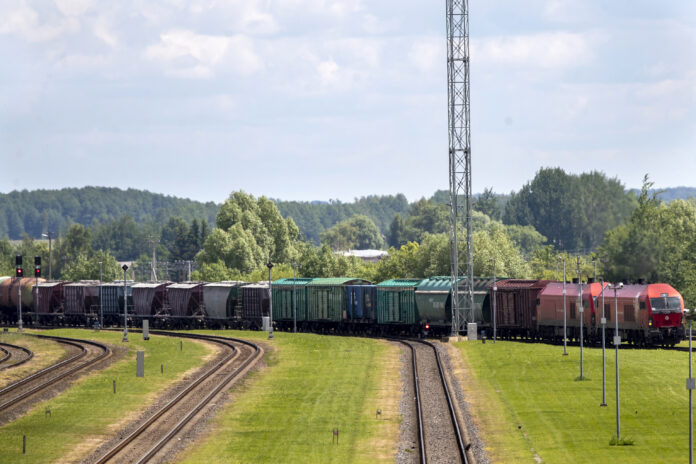Russia continues to ruminate its reprisals after Lithuania vetoed transit by rail to the Russian enclave of Kaliningrad. Moscow even accuses the United States of being the instigator of the “blockade”. “There is no need to rush, but of course, we are determined enough,” Vladimir Putin’s spokesman Dimitri Peskov said Friday, hours after the Russian government warned Lithuanians that Moscow’s response would not be just ” diplomat”.
The Russian Foreign Ministry described as obvious the involvement of the United States in the decision of the Lithuanian government, which in turn insists that it has limited itself to applying the sanctions imposed by the EU after the Russian attack on Ukraine. “The West, with explicit instructions from the White House, imposed a blockade on the transit of certain goods,” the Russian government said in a statement, denouncing that the decision followed the pattern of “increasingly hostile actions by the United States.” “. From the Russian ministry they recall that before the Lithuanian blockade “a repatriation flight of our diplomats from the United States was frustrated.”
Asked if it is possible to expect retaliatory measures after the report by the Secretary of the Security Council, Nikolai Patrushev, to the Russian president, Peskov settled: “We need time to analyze this situation.”
Lithuania blocked the transit of cargo from mainland Russia to Kaliningrad since June 18, canceling the current agreements on border transport. The measure affects up to 50% of the cargo, according to estimates by the provincial authorities.
From Russia, the Ombudsman, Tatiana Moskalkova, stressed that this “illegal” blockade seriously violates human rights. Kaliningrad Governor Anton Alijanov has warned Lithuania that Russia’s response to the cargo blockade will be forceful.
Lithuanian President Gitanas Nauseda stated on Wednesday that his country is prepared for possible disconnection from the BRELL energy ring by Russia. BRELL is an acronym that identifies Belarus, Russia, Estonia, Latvia and Lithuania. Lithuania has long since relegated this electricity supply route to avoid Russian blackmail.
There are other steps Russia could take in response. As Alexander Nosovich, an analyst at the Valdai think tank, explains to the Vedomosti newspaper, the main response is most likely to be an equivalent restriction on train transit to Lithuania. Transport between the Baltic states and the EU, including Poland, with which Lithuania borders, also passes by rail through the Russian enclave.
If Russia bans transit through Kaliningrad, Lithuania may suffer economic losses, depending on what goods Moscow decides to ban now. It could, for example, suspend the transit of fertilizers and petroleum products from other EU countries, imitating the community imposition.
Lithuania has formally renounced Russian oil products, but needs passage through Russian territory to receive some products from Poland. Raw materials shipped from Poland via the Kaliningrad region are used at the Lithuanian Mazeikiai refinery. The ban on the transit of oil from Poland to Lithuania “will be a serious blow to the Lithuanian budget”, according to this Russian expert.
Conforms to The Trust Project criteria








